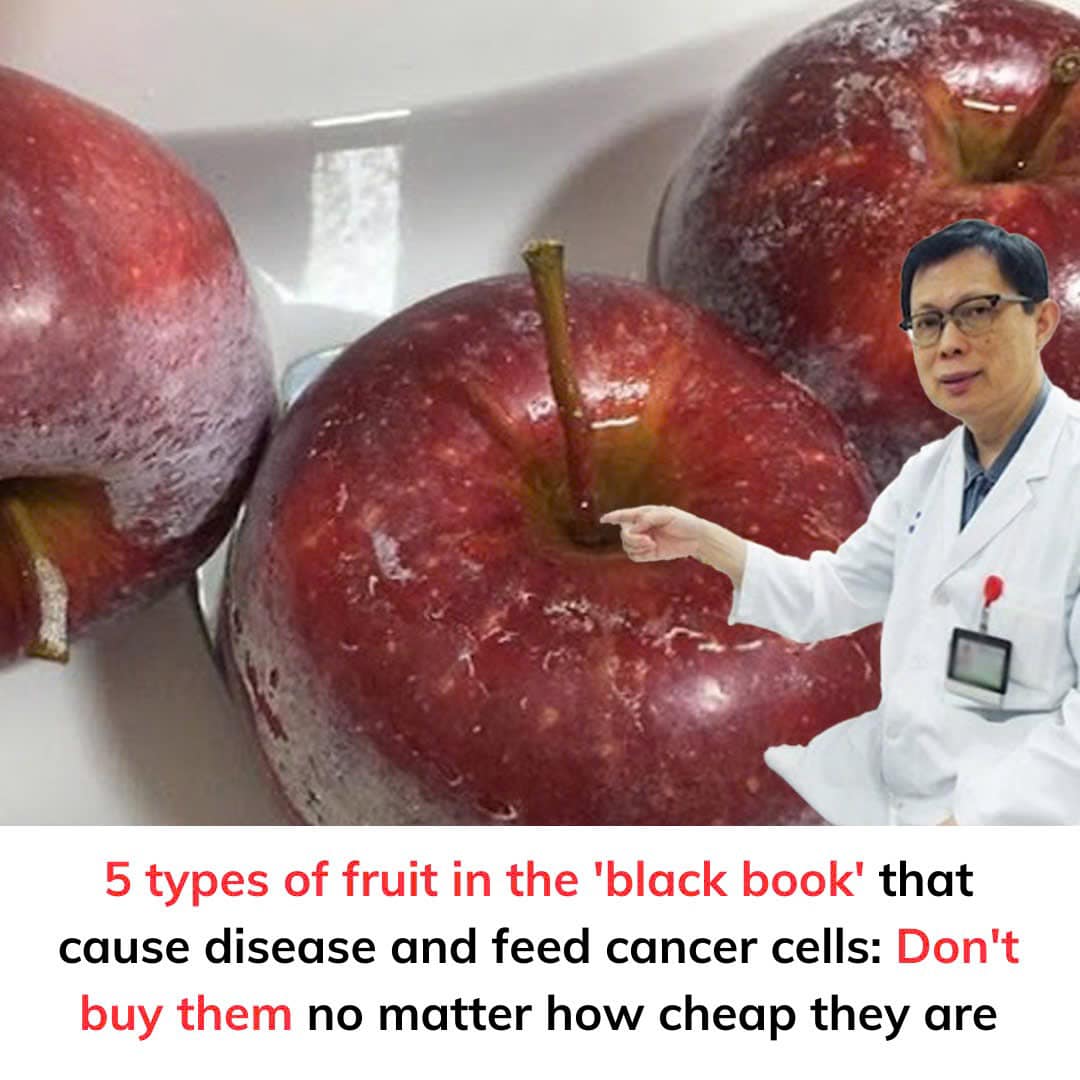
When it comes to buying fruits and vegetables, most people prioritize freshness, affordability, and seasonal availability. After all, who doesn’t love a juicy apple or a perfectly ripe banana? However, even with the best intentions, some seemingly healthy fruits might carry hidden toxins that increase the risk of cancer. After analyzing expert health reports, I’m sharing five fruits that could pose serious health risks if consumed carelessly.

1. Wax-Coated Apples: A Silent Threat to Blood Health
Wax-coated apples are common in grocery stores, and their shiny appearance often attracts buyers. While natural wax coatings derived from beeswax or carnauba wax are considered safe, industrial-grade wax coatings are a different story. These cheaper alternatives may contain toxic chemicals like lead, mercury, and even formaldehyde. Prolonged consumption of such wax-coated apples can compromise the immune system and potentially increase the risk of leukemia.
Tip: Choose organic apples or wash them thoroughly with warm water and baking soda to remove the wax layer.
2. Moldy Fruits: Aflatoxin and Liver Cancer Risk
Discounted, overripe, or moldy fruits might seem like a bargain, but they come with significant health hazards. Mold often produces aflatoxin, a highly toxic compound classified by the World Health Organization (WHO) as a carcinogen. Even if you cut away the moldy parts or cook the fruit, aflatoxins can seep deep into the flesh and remain toxic. Long-term exposure to aflatoxins can lead to severe liver damage and even liver cancer.
Tip: Avoid buying or consuming fruits with any signs of mold or decay. Fresh is always best.
3. Betel Nuts: A Tradition with Hidden Consequences
Betel nuts are culturally significant in many Asian communities, including Vietnam. However, regular chewing of betel nuts can damage the delicate tissues in the mouth, leading to irritation and inflammation. Compounds like arecoline and arecaidine found in betel nuts are known to irritate these tissues and increase the risk of oral cancer. Additionally, habitual betel nut use has been linked to digestive issues and irregular heart rates.
Tip: If you have a habit of chewing betel nuts, consider healthier alternatives or consult a healthcare professional for support.
4. Refrigerated Tropical Fruits: Nitrite Formation
Storing tropical fruits like mangoes or pineapples in the refrigerator might seem like a good idea, especially in warmer climates. However, experts warn that refrigeration can cause some tropical fruits to produce nitrites—a compound classified as carcinogenic. Consistently consuming nitrite-rich fruits may increase the risk of cancer over time.
Tip: Store tropical fruits at room temperature and consume them promptly to reduce the risk.
5. Chemically Ripened Bananas: Hormonal Imbalance and Blood Cancer
Bananas are a staple fruit, but their short shelf life often leads farmers and sellers to harvest them while they are still green. To speed up the ripening process, chemicals like formaldehyde and other artificial preservatives are sometimes used. These chemicals can disrupt hormonal balance in children, leading to early puberty, and long-term exposure has been linked to an increased risk of blood cancer.
Tip: Choose naturally ripened bananas whenever possible, and avoid overly bright yellow bananas with an unnatural sheen.
Final Thoughts: Shop Smart, Eat Safe
Fruits are undeniably essential for a balanced diet, offering vitamins, antioxidants, and natural energy. However, being informed about their source, preservation methods, and storage is crucial. Avoid overly shiny apples, steer clear of moldy fruits, opt for naturally ripened bananas, and store tropical fruits at room temperature.
By making smarter choices and staying aware of potential hazards, you can enjoy the benefits of fruits while minimizing health risks. After all, health is the real wealth!